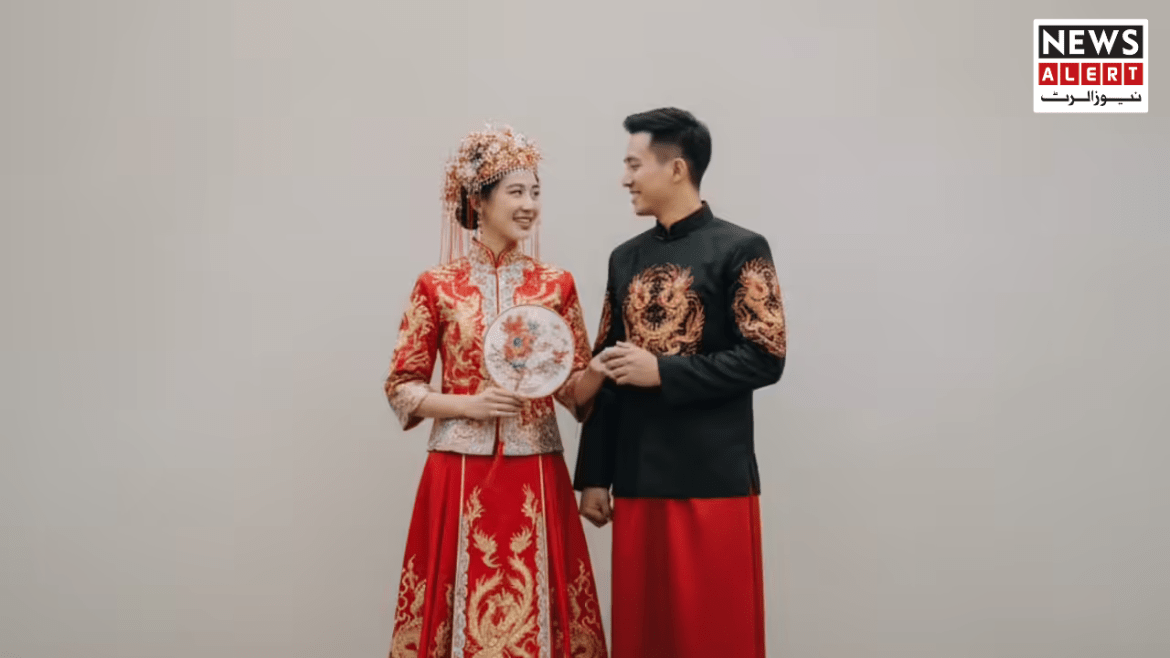Ningbo Introduces a New Marriage Incentive
The eastern Chinese city of Ningbo has launched a new reward scheme for couples who register their marriage before the end of 2025. From 28 October to 31 December, couples who complete their registration will receive cash vouchers funded by the local government.
Moreover, officials want to encourage young adults to marry sooner. They argue that rising living costs and economic uncertainty have discouraged many people from starting families. The new offer aims to ease some of that financial pressure.
Costs Push Young Chinese Away From Marriage
China has seen a sharp drop in marriages over the past decade. According to government data, marriage registrations fell from 13.5 million in 2013 to 6.8 million in 2022, marking the lowest number on record. Consequently, fewer marriages often lead to fewer births, raising concerns about China’s long-term demographic future.
Young people cite several key reasons for delaying marriage. Education is expensive, childcare costs continue to rise, and housing in many urban areas has become unaffordable. In addition, many workers face long hours and intense job competition. Therefore, financial insecurity strongly influences major life decisions.
Local governments are now trying various strategies to support couples. For example, Ningbo’s voucher scheme reduces wedding costs and encourages family planning.
Vouchers Worth 1,000 Yuan for Each Couple
The Ningbo Civil Affairs Department explained the scheme in an official WeChat post. Each registered couple will receive vouchers worth 1,000 yuan, equal to about USD 140. These vouchers can be spent on wedding photography, hotel stays, banquets, and related services, showing how couples worldwide creatively celebrate weddings even in challenging circumstances, like this Filipino couple who tied the knot in a flooded church.
Officials will distribute the vouchers on a first-come, first-served basis. Similarly, other eastern cities have launched comparable incentives. Together, these measures aim to motivate more couples to marry before the year ends.
A Rapidly Ageing Population Raises Pressure
China’s population of 1.4 billion is ageing quickly. The country recorded its lowest birth rate on record in 2023. As a result, policymakers worry about a shrinking workforce and the heavier burden on pension systems.
In response, Beijing has encouraged local governments to test new ideas. For instance, last year, the central government asked universities and colleges to introduce love education programmes. These programmes teach students about relationships, emotional well-being, and the value of family life. Thus, officials hope financial support combined with cultural initiatives will create a more family-friendly environment.
Will Financial Incentives Change Behaviour?
Analysts see Ningbo’s scheme as an important pilot project. If the vouchers boost marriage registrations, other regions are likely to expand similar benefits. Some provinces already offer childcare subsidies, maternity support, or extended parental leave.
However, experts warn that cash alone may not resolve deeper economic and social concerns. Many young adults want stable employment, flexible work hours, and affordable housing before committing to marriage. Without such reforms, the impact of small incentives may remain limited.
A Symbol of China’s Urgency
Ningbo’s offer highlights China’s growing urgency as it tries to slow demographic decline. As the year-end deadline approaches, the city hopes more couples will register their marriages and take the first step toward building families.















